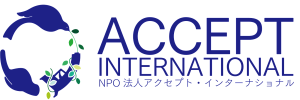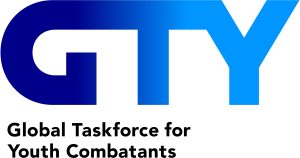- Home
- The Role of International Norms and Global Agendas in Transforming Youth Combatants into Unique Agents of Peace
The Role of International Norms and Global Agendas in Transforming Youth Combatants into Unique Agents of Peace

Event Date: November 24, 2025 - 4:00pm to 6:00pm
Location: FSS 4007 and online, 120 University Private, University of Ottawa
Registration: Google Forms
Presented by CIPS, Accept International and the Global Taskforce for Youth Combatants (GTY)
Persistent armed conflicts worldwide have revealed that a significant proportion of frontline combatants are young individuals, including women, aged 18 to 35.
In recent years, global agendas such as the Sustainable Development Goals (SDGs), the UN Youth Strategy, and frameworks like Women, Peace and Security (WPS) and Youth, Peace and Security (YPS) have highlighted the crucial role of youth empowerment in peacebuilding. Yet a substantial number of “invisible youth,” particularly those associated with non-state armed groups (YANSAG), remain largely overlooked.
Conflict actors under the age of 18 are protected by international norms, including the Convention on the Rights of the Child, the Optional Protocol on the involvement of children in armed conflict, and the Paris Principles. However, upon reaching 18, even individuals previously recruited as child soldiers often fall outside the scope of protection and support and are instead primarily treated as merely security threats. This situation not only limits their potential as youth and former conflict actors with lived experiences but also makes it more difficult for them to break free from cycles of violence and hatred, ultimately posing a significant obstacle to achieving sustaining peace.
In the current context of global instability, where even the United Nations Security Council faces functional challenges, it is now crucial to consider the role that Canada and Japan, as G7 members with influence in international affairs and a shared commitment to human security, should play, as well as the cooperation and stance both countries should adopt in shaping global responses.
This event, co-hosted by Accept International and the University of Ottawa, will bring together university professors, experts in relevant fields, the Ambassador of Japan to Canada, and prominent Canadian politicians. The discussion will focus on “The Role of International Norms and Global Agendas in Transforming Youth Combatants into Unique Agents of Peace.” Within the broader frameworks of international conflict resolution, peacebuilding, security, and youth empowerment, the dialogue will explore the roles Canada and Japan can assume and how we can collaborate to ensure that international norms and global agendas contribute to the pursuit of sustaining peace through the empowerment and reintegration of overlooked YANSAG.
Speakers:
 Yosuke Nagai is the Executive Director of Accept International and the Founder of the Global Taskforce for Youth Combatants. Since 2011, he has led the design and implementation of deradicalization, reintegration, and rehabilitation programs for disengaged members of non-state armed groups in conflict-affected contexts such as Somalia and Yemen. He has also actively promoted dialogue and reconciliation initiatives in highly sensitive environments, including Palestine. He holds a PhD in Social Science from Waseda University and a Master’s degree in Conflict Studies from the London School of Economics and Political Science (LSE). He has served as a Visiting Fellow at the Geneva Academy of International Humanitarian Law and Human Rights and is currently a Visiting Fellow at the University of Oxford. In addition, he contributes to the work of various United Nations bodies through participation in Youth Advisory Boards, Expert Group Meetings, and Technical Working Groups.
Yosuke Nagai is the Executive Director of Accept International and the Founder of the Global Taskforce for Youth Combatants. Since 2011, he has led the design and implementation of deradicalization, reintegration, and rehabilitation programs for disengaged members of non-state armed groups in conflict-affected contexts such as Somalia and Yemen. He has also actively promoted dialogue and reconciliation initiatives in highly sensitive environments, including Palestine. He holds a PhD in Social Science from Waseda University and a Master’s degree in Conflict Studies from the London School of Economics and Political Science (LSE). He has served as a Visiting Fellow at the Geneva Academy of International Humanitarian Law and Human Rights and is currently a Visiting Fellow at the University of Oxford. In addition, he contributes to the work of various United Nations bodies through participation in Youth Advisory Boards, Expert Group Meetings, and Technical Working Groups.
 Ahmed Hamed was forcibly subjected to cultural and training programs by Houthi (Ansar Allah) when he was 12 years old, during the conflict in Yemen. These programs included extreme interpretations of Islamic and moral teachings that demanded obedience and sacrifice, alongside training in weapons handling, disassembly, and physical conditioning. Amid these challenges, he and his family managed to escape just before being sent to the front lines, finding refuge in areas controlled by the Internationally Recognized Government (IRG). Following their escape, his situation improved significantly with the aid of humanitarian organizations, especially Accept International, which provided support in the form of food, medicine, and vocational training. He particularly benefited from programs that included education on solar system installation and computer skills, which have greatly helped him on his path to self-reliance. Currently a high school student, he is utilizing the skills and knowledge he has acquired to forge a better future. He is dedicated to continuing his education and applying his experiences to help build a more peaceful society.
Ahmed Hamed was forcibly subjected to cultural and training programs by Houthi (Ansar Allah) when he was 12 years old, during the conflict in Yemen. These programs included extreme interpretations of Islamic and moral teachings that demanded obedience and sacrifice, alongside training in weapons handling, disassembly, and physical conditioning. Amid these challenges, he and his family managed to escape just before being sent to the front lines, finding refuge in areas controlled by the Internationally Recognized Government (IRG). Following their escape, his situation improved significantly with the aid of humanitarian organizations, especially Accept International, which provided support in the form of food, medicine, and vocational training. He particularly benefited from programs that included education on solar system installation and computer skills, which have greatly helped him on his path to self-reliance. Currently a high school student, he is utilizing the skills and knowledge he has acquired to forge a better future. He is dedicated to continuing his education and applying his experiences to help build a more peaceful society.
 Sandra Maignant is a CAAFAG advisor working with Plan International and co-leading the global CAAFAG Task Force since 2020. She has led the research and the development of few inter-agency technical resources, such as the Technical Note on Girls Associated with Armed Forces and Armed Groups, the CAAFAG Programme Development Toolkit and the Technical Note on livelihood for CAAFAG and their implementation in 10 countries. She recently led the development of a Working Paper on the collaboration between peacekeeping missions and child protection actors for the prevention of child recruitment, the release and identification and the reintegration of CAAFAG.
Sandra Maignant is a CAAFAG advisor working with Plan International and co-leading the global CAAFAG Task Force since 2020. She has led the research and the development of few inter-agency technical resources, such as the Technical Note on Girls Associated with Armed Forces and Armed Groups, the CAAFAG Programme Development Toolkit and the Technical Note on livelihood for CAAFAG and their implementation in 10 countries. She recently led the development of a Working Paper on the collaboration between peacekeeping missions and child protection actors for the prevention of child recruitment, the release and identification and the reintegration of CAAFAG.
 Justin Piché is an Associate Professor in the Department of Criminology at the University of Ottawa. For more than a decade, he has been engaged in action research projects that examine how state authorities incorporate and neutralize critiques of, and alternatives to, imprisonment to inform community organizing oriented around enhancing the human rights of criminalized people and promoting their liberation. He currently serves as Director of the Carceral Studies Research Collective and Co-editor of the Journal of Prisoners on Prisons, which is a peer-reviewed journal featuring articles written by current and former prisoners published by the University of Ottawa Press. Professor Piché is also a member of the Criminalization and Punishment Education Project, which runs the Jail Accountability & Information Line that works in solidarity with people held at the Ottawa-Carleton Detention Centre to address the human rights issues they face.
Justin Piché is an Associate Professor in the Department of Criminology at the University of Ottawa. For more than a decade, he has been engaged in action research projects that examine how state authorities incorporate and neutralize critiques of, and alternatives to, imprisonment to inform community organizing oriented around enhancing the human rights of criminalized people and promoting their liberation. He currently serves as Director of the Carceral Studies Research Collective and Co-editor of the Journal of Prisoners on Prisons, which is a peer-reviewed journal featuring articles written by current and former prisoners published by the University of Ottawa Press. Professor Piché is also a member of the Criminalization and Punishment Education Project, which runs the Jail Accountability & Information Line that works in solidarity with people held at the Ottawa-Carleton Detention Centre to address the human rights issues they face.
 Nisha Shah is an Associate Professor of Political Studies at the University of Ottawa and the Associate Director of CIPS.
Nisha Shah is an Associate Professor of Political Studies at the University of Ottawa and the Associate Director of CIPS.
Opening Remarks:
The Honourable Robert Oliphant, P.C., M.P. – Member of Parliament for Don Valley West & Parliamentary Secretary to the Minister of Foreign Affairs.
Moderator:
 Scott E. Simon (Ph.D., Anthropology, McGill), Professor in the School of Sociological and Anthropological Studies, co-holder of the Chair in Taiwan Studies, research member of CIPS and the HRREC, Senior Fellow at the Macdonald-Laurier Institute.
Scott E. Simon (Ph.D., Anthropology, McGill), Professor in the School of Sociological and Anthropological Studies, co-holder of the Chair in Taiwan Studies, research member of CIPS and the HRREC, Senior Fellow at the Macdonald-Laurier Institute.
Social Sciences Building
Subscribe to the CIPS Newsletter
No spam, only authentic content.





